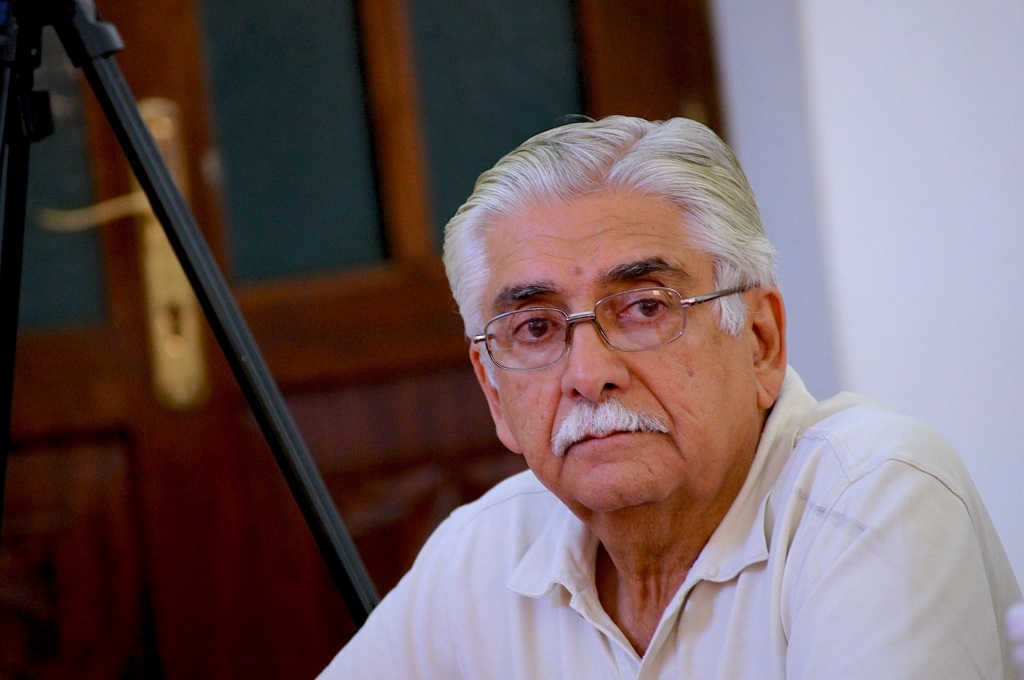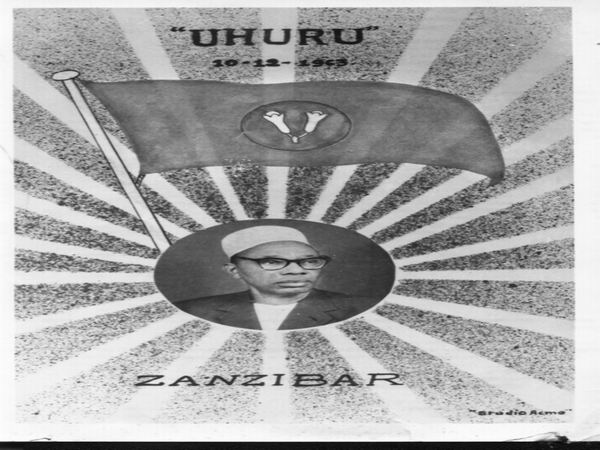Kwa kiasi gani Zanzibar ni muhanga wa historia?
Inasemwa kwamba mikwamo ya kisiasa na kisheria ambayo huikumba Zanzibar mara kwa mara ina mashiko yake kwenye historia ya visiwa hivi ya kabla ya 1964 na kwamba Wazanzibari wameshindwa kutoka kwenye ngome ya historia hiyo licha ya nusu karne kupita. Je, kuna ukweli wowote kwenye hilo? Hapa tunawaletea majadiliano ya wanahistoria wa Zanzibar yaliyoibuka baada ya makala “Uchaguzi wa Zanzibar wa Mwaka 1961” ya Mohamed Said. Tunakushauri kwanza isome hiyo makala ya Mohamed Said, kabla hujasoma majadiliano haya.
Hoja ya mkoloni kuubeba muungano wa ZNP/ZPPP
Ahsante kwa kutuletea maandishi haya ambayo yanatukumbusha historia ya karibuni ya Zanzibar. Bila shaka waraka huu umeunakili kutoka kijitabu alokiandika mzee wetu Bw Amani Thani Fairuz miaka kadha iliyopita na ambacho binafsi nilibahatika kukisoma.Mimi naomba nitoe maoni ya mawili matatu kuhusu maelezo ya Mzee Amani Thani.
Kwanza nakubaliana nawe kuwa yapo ya kujifunza katika kadhia ya uchaguzi wa Jan na June 1961 Zanzibar khasa tukitilia maanani hali ya kisiasa ilivyo hii leo visiwani. Lakini ninalotaka kuchangia mimi ni kwamba maelezo ya Mzee Fairuz kama yalivyo maandishi mengine kuhusu mada hii niliyoyasoma yanakuwa na upungufu mmoja. Nayo ni tabia ya kuelezea matukio (facts) bila ya kujadili kwa upana na kutafsiri yaliyo nyuma ya matukio hayo yaani muktadha wake (broad discussion of related issues surrounding the narrated events).
Kwa mfano unapozungumzia suala la kuwepo VITI katika majimbo ya uchaguzi vilivyokuwa vinagombewa na kueleza matokeo ya chama kile kilipata viti kadhaa na kingine kikapata viti zaidi na kushinda bila ya pia kuonyesha TAKWIMU za kura zilizopigwa hakutowi picha sahihi kwa wasomaji kuhusu mfumo mzima wa chaguzi zile.
Hivi leo waandishi mbalimbali wanaeleza na kuonyesha jinsi ukataji wa majimbo (constituencies) ulivyokuwa wa mashaka na hila. Imebainika majimbo yaliyokuwa na wafuasi wengi wa ASP yalitengewa viti vichache wakati majimbo yalokuwa na watu kidogo wa ZNP yalipewa viti vingi.Ujanja huu ambao Waingereza wanauwita ‘gerrymandering’ ndio hatimaye uliwapokonya ushindi halali ASP na kutulea mabalaa na maafa visiwani.Wasomaji lazima waelimishwe kuwa miongoni mwa sababu za kufanyika Mapinduzi Zbar ni hili la kunyimwa kwa hila na ujanja haki yao ASP ya kuunda na kuongoza serikali.
Jengine ninalotaka kulieleza kwa mnasaba huu huu wa kujadili mambo badala ya kuyataja tu kujuu juu ni kitendo cha Sheikh Mohd Shamte kujitoa ASP mwaka 1960. Bw. Fairuz ameeleza haelewi sababu za Mzee Shamte kujitoa ASP. Lakini kadri ya muda ulivyopita imebainika wazi kuwa ZPPP kilikuwa ni chama kilichotokana na tawi lililokuwa la Shirazi Association huko Pemba. Mara zote imekuwa ikitolewa picha potofu kuwa Waswahili wa Zanzibar waliojitambulisha kwa jina la Shirazi Association walikuwa ni kitu kimoja (homogeneous).
Kumbe hali ni tofauti kabisa.Washirazi wa Pemba na hata baadhi ya wale wa Unguza wamekuwa wakati wakiwemo ndani ya chama cha ASP wakipinga kile walichokihisi ujenzi wa uhusiano wa karibu kati ya ASP na TANU.Shamte aliwakilisha hisia hizo na alikuwa hamuamini kabisa Julius Kambarage Nyerere kinyume na alivyokuwa Mzee Karume. Na Mzee Shamte alipohisi huu usuhuba wa Nyerere na Karume unazidi kushamiri ndipo akagombana na Mzee Karume na kuamua kujitoa ASP.Lakini kuna jambo jengine ambalo ZNP hawakupenda kuliongea. Nalo ni kwamba huyu Mzee Shamte hapo mwanzoni alikuwa hawaamini pia Waarabu!
Inaelezwa kuwa katika mwaka ule (1959) ambao Mzee Karume kwa shinikizo la PAFMECA alianza kuhutubia mikutano kupitia jukwaa moja na Sheikh Ali Muhsin, Shamte alikuwa ni diehard mmoja wapo aliekasirishwa ndani ya ASP. Cha kustaajabisha ni kumuona mtu yule yule alokuwa akipinga kumuona Karume akiwa pamoja na Ali Muhsin alikuja baadae kuunda Umoja na huyohuyo Ali Muhsin kuanzia uchaguzi wa 1961 na hatimae akapewa Uwaziri Mkuu ndani ya Serikali ya Uhuru 1963!
Haya ndio mambo ambayo waandishi kama Bw. Fairuz wanapaswa kuyasema kwa uwazi zaidi.
Wasalam,
Salim Msoma
Hoja ya mkoloni kuipendelea ASP

Dear Salim Msoma
Yet again, against my better judgement, I feel compelled to engage in what I have begun to feel is beating a dead horse about the past political history of Zanzibar. I agree with you that we should have a ‘broad discussion of related issues surrounding the narrated events,’ but I am struck how these ‘related issues’ are selectively used.
I assume that you are old enough to remember, as I do, the events of the ‘zama za siasa’ as they transpired, and not repeat the post-facto old wives’ tales to explain away the past.
You allege, without providing any evidence, that the constituencies during that period were divided for those elections by the British colonialists to favour ZNP which contributed to the situation we are in. Yes, gerrymandering is a time-honoured tactic as was practiced by ZEC this time, slicing off Shangani to join with Kikwajuni at one of the Stone Town, while joining a bit of Gulioni to it at the other end.
But if what you say is correct about the earlier period, then it should apply equally to the 1957 election when the ZNP had won 22% of the votes scattered all over the two islands but did not win a single seat.
We should also remember the context in which these elections were held. After the Suez crisis and robust support for Nasser and Egypt, it was the ZNP that was seen as the enemy by the British, while ASP was at that time asking them to stay on longer to ‘educate them’ before independence. Keeping that in mind how can one argue that the British went out of their way to help the ZNP of the ‘communist’ Babu who had reorganised it to win more seats?
In fact I think it was the Coutts Commission in 1960 that had drawn boundaries for the 21 seats which I distinctly remember the ASP accepting wholeheartedly – I used to attend ASP meetings every Sunday at Raha Leo. It was not ZNP but the Indian National Association of the likes of Rustam Sidhwa, and ‘Dakku’ whose photograph which I saw hanging in the CMM HQ in Kisiwandui in the 1990s, which had proposed that the ‘Stone Town’ deserved two seats as the capital and commercial centre. It is precisely this that led to the political deadlock when the two sides had 11 seats each that led to the second election within six months in June and the killing of 68 people, many of them women and children.
There is a fundamental flaw in the ‘first past the post’ elections in contrast to proportional representation. In the case of Zanzibar in the early 1960s you allege ‘gerrymandering’ when the ASP got 54% of the votes but a minority of seats in the National Assembly; but we seem to be quite happy to continue with the same system which has recently given CCM 58% of the actual votes but more than 70% of the seats in the Bunge, as in all the previous parliaments, about which we do not seem to complain.
We should indeed take into consideration the ‘related issues’, but define them honestly and not merely to score ‘goli ya mkono.’ I see at least two important lessons:
- That the two elections within six months in 1961 inevitably led to such political tensions when the parties were in a ‘kufa kupona’ mode that led to the cold-blooded murder of so many of our innocent citizens – which is the point that Mohamed Said and Sh. Fairuz are making. The lesson for us in 2016 is that calling for a rerun of the election within five months will inevitably lead to untold violence for which the responsibility will lie with the two governments, the ZEC Chairman, and the party that has been pushing him.
- The second lesson from the last election before independence in 1963 is that all the political leaders at that time, on the eve of national independence, should have seen as their paramount duty to unite all Zanzibaris so that we enter the new era in our country’s history in peace to concentrate on our national development. A Government of National Unity was broached by some people apparently from both sides, but the national tragedy is that it did not get enough traction. But this time, it is not a situation of ‘kufa kupona’ since, by a two-thirds majority, Zanzibaris in their wisdom had accepted Maridhiano and the GNU in 2010, which means that no party loses everything.
The problem is that some people had accepted multi-partyism in 1995 ‘shingo upande’, and before they could straighten their necks, they again had to accept the will of the people in 2010 with their necks now doubly bent. It is by pandering to these people, whose slogan is ‘tumepinduwa kwa mapanga, hatutoi kwa vikartasi’ that Zanzibar and the country as a whole is being driven along this highway to disaster.
We do not need beat the dead horse of the 1960s, but to learn the relevant lessons from our history. Those who do not learn from history are condemned to repeat it – the first time it was tragic enough; will it be farce the second time?
Abdul Sheriff
Categories

